Our current research investigates how attention develops from infancy through adulthood, with a special focus on how we engage with and learn from faces! We also explore how past experiences shape the way we direct our attention.
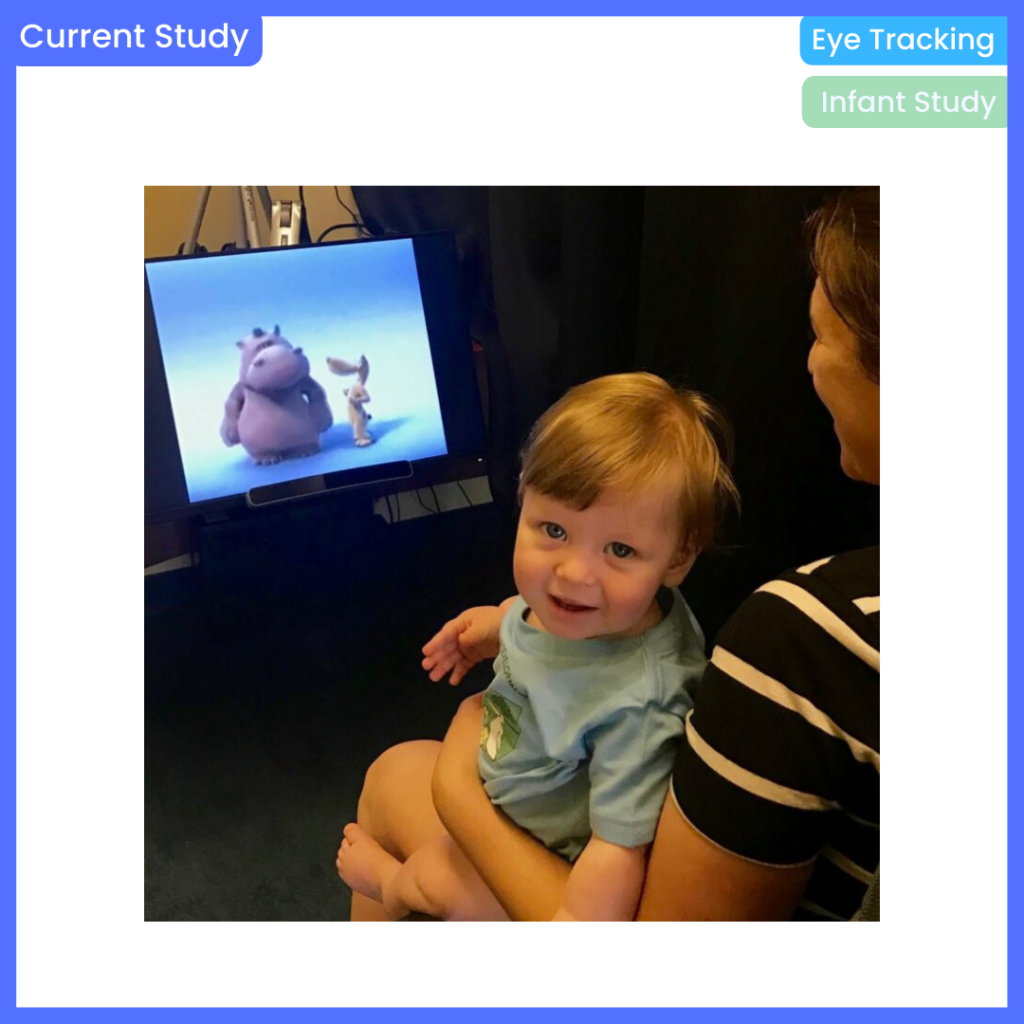
3 Visits, 60-90 minutes
Ages: 4 months; 6 months; 8 months
Attention to Caregivers in Infancy
This study looks at how and why infants’ attention to their caregiver changes over the first year of life. Families who participate are asked to visit our lab three times, when infants are 4 months, 6 months, and 8 months old. During the visits, infants and their caregivers do several activities together:
- Caregivers complete a series of questionnaires that ask about topics including family sociodemographic information, typical behavior, the makeup of your child’s social network, events that you may have experienced in the past, and how you have been feeling in the past couple of weeks.
- Infants view a couple of short movies in which shapes, objects or faces appear on the screen. We will use a non-invasive eye tracker to record where your child looks as they view the display.
- Next, infants play with several standard infant toys while we record where they are looking.
- Infants and caregivers play together while we use a non-invasive EKG device to measure infants’ heart rate.
Are you expecting or caring for a baby under or around four months? Sign up to stay in touch and get updates as your baby grows!
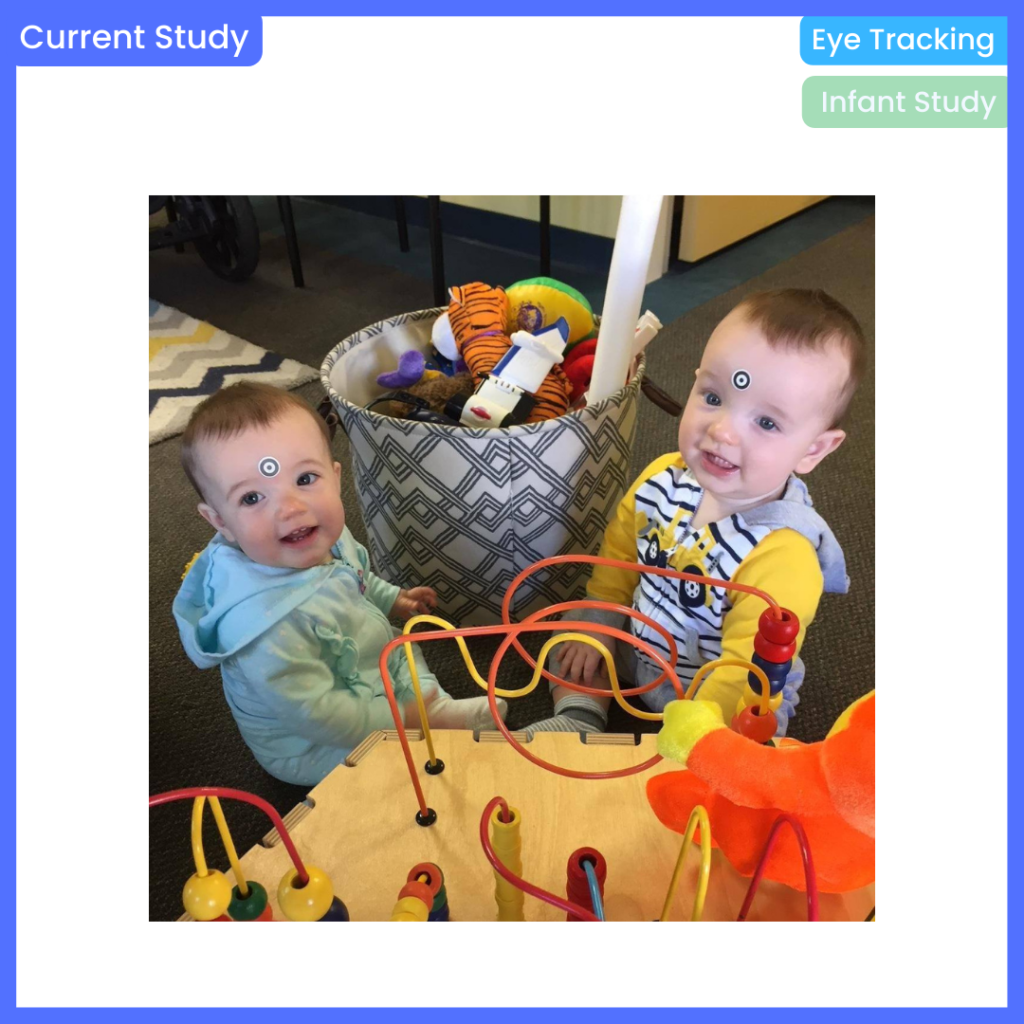
Race-Based Attention Orienting Biases in Infancy
Ages: 5-6 months; 10-11 months
1 Visit, 1 Hour
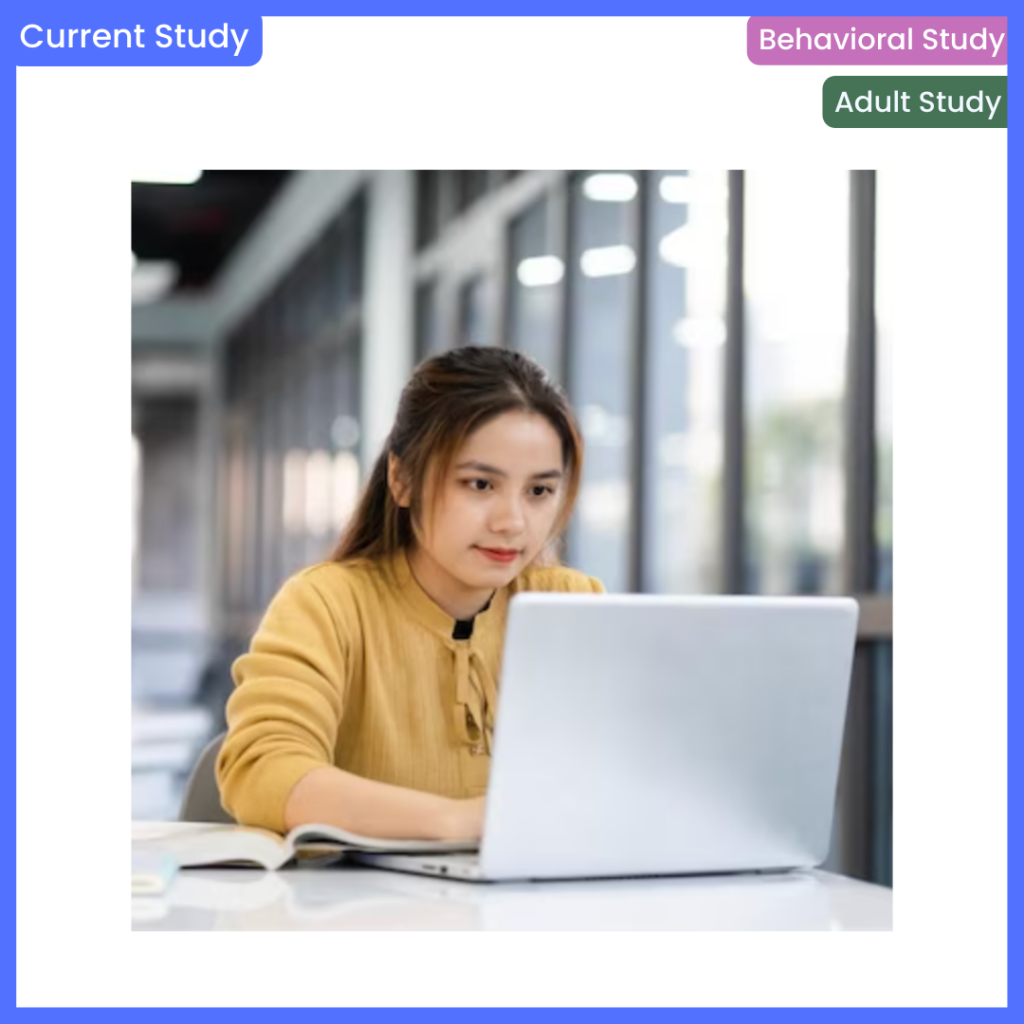
Attention Orienting to Stimuli in Adults
Ages: 18-35 years
1 Visit, 30 minutes
In this study, adults will play a game where they search for a butterfly while other stimuli appear on the screen. We will also ask you questions about yourself.
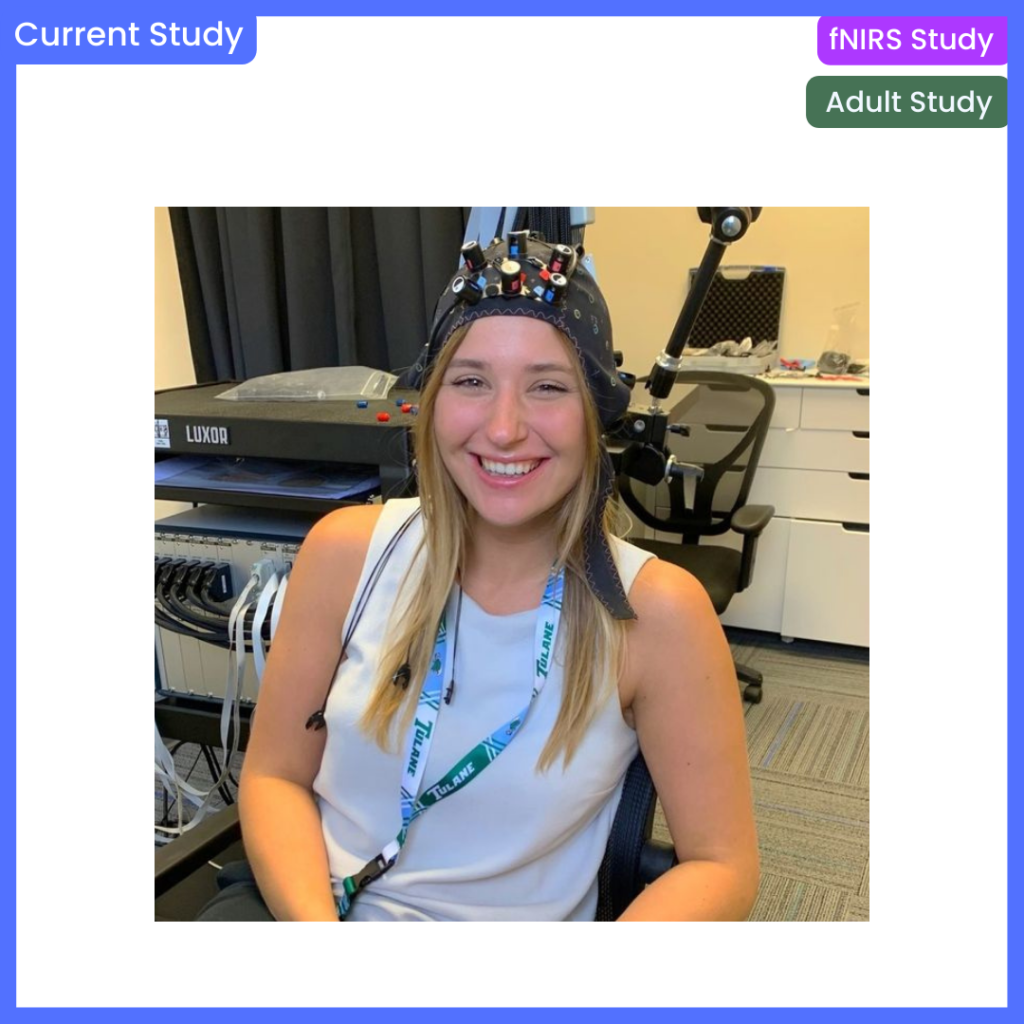
fNIRS Study of Attention Orienting in Adults
Ages: 18-35 years
1 Visit, 1.5 Hours
In this study, adults will complete a computer task containing images appearing on a computer screen. We will use a non-invasive imaging technique, fNIRS, to record brain activity.
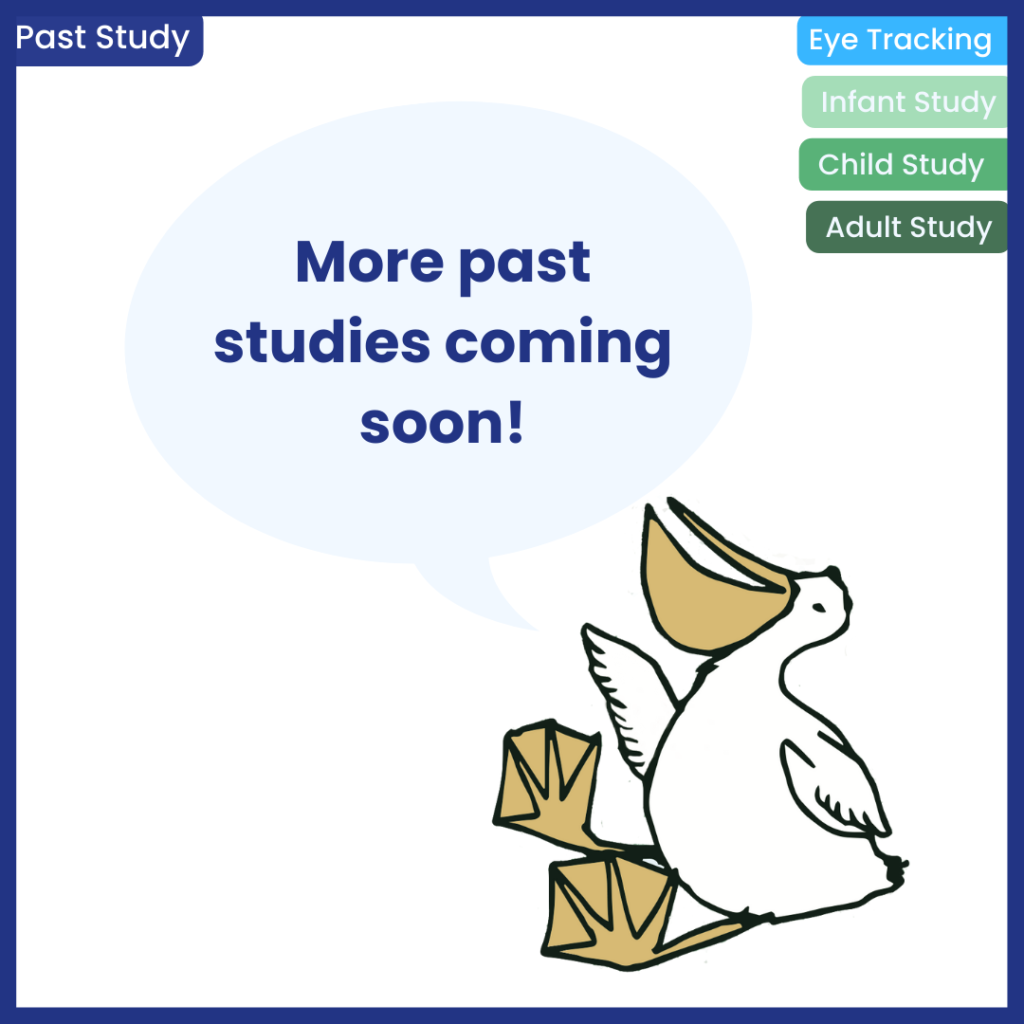
Not interested in or eligible for our current studies? Stay connected by joining our contact list. We’ll keep you informed about future research opportunities that you or your children might be interested in!

